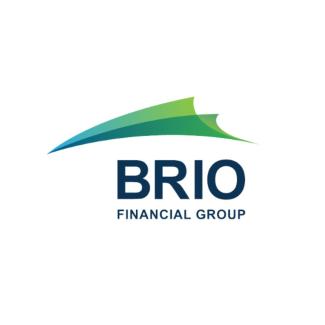
Why "Dating" Your Financial Planner is a Good Idea
by Brandon Miller on Sep 27, 2019
You know that moment during a first date—often when you’re deep into your entrée or second drink—where you have this very vivid feeling. You think, hmm, this might work. Or your thoughts go to how quickly and gracefully you can exit.
That deep down “don’t know where it came from, but don’t deny it” feeling doesn’t just serve you well when you’re dating. It’s also a great way to find the right financial planner for you.
Sadly—or perhaps, not—there’s no Tinder or Grindr for financial planners. So how do you even know where to find a wonderful money person to “date”? I have a few suggestions for you.
Be realistic.
The truth is, size matters when it comes to financial planning. If you don’t have many assets or much income, most financial planners aren’t interested in you. But then again, you probably don’t need them.
A robo solution can provide a basic alternative for many people. After you input some data about your situation, they provide financial advice based on algorithms. Since these algorithms are executed by software, and not a human being, the plans they provide are often considerably cheaper. These are cookie-cutter plans, and not something tailored to your specific circumstances. But they can be much more helpful than trying to figure out things totally on your own.
Don’t let age be a barrier.
Just because you’re young doesn’t mean that you shouldn’t consider getting into a long-term (financial) relationship. It’s true that you may not have had enough time to build up many assets. But if you have a high income, many planners will be happy to take you on as a client because you have years of compounding magic ahead of you.
Since one of the best things you can do for your future is to start saving early, it may be smart to begin your search for a financial professional whom you mesh with now.
Which brings me to my final point.
Understand what you need.
Not everyone wants the same thing in a financial planner. Some only seek reinforcement for their own decisions, while others want somebody who will just handle all that money stuff for them. As with many other aspects in life, figuring out what you need can make it easier to find.
Here are a few of the roles a financial planner can play for you:
Trusted Opinion. You may love doing your own research into investments and strategies and all things financial. But overconfidence can lead to big mistakes. Rather than go it alone, it may be smart to find an advisor who can review your ideas, keep you away from trouble, and guide you toward the best options for you.
Therapist. Maybe you don’t really know what you want out of life or what you want your money to accomplish. Or you could be in a relationship where you and your partner(s) have different goals for your money. A financial advisor can act as a neutral party, helping you to uncover goals, handle competing interests and to work through other concerns that you might have about money.
Coach. Major life decisions—whether to have another child, keep living in San Francisco, take the retirement package you’ve been offered, etc.—are also enormous financial decisions. A financial advisor can help you to gain the confidence to take these leaps by showing you how to position and use your assets to live your dreams.
Money Maximizer. Perhaps your dream is to make as much money as you possibly can. You’re not so interested in delving into what the money is for or how you’ll use it; you’re simply interested in building your bottom line. If this sounds like a fair description of your money philosophy, look for an advisor whom stresses returns over all else.
You can use these factors to narrow down the field of potential advisors and help to find a professional whose approach matches what’s right for you. Remember to look for someone who is also a fiduciary. (See last month’s article for why that’s important.) And by all means, do your research to investigate their credentials, experience, reputation, and fee structure.
But above all else, trust your gut about the person, just like you would on a date. After all, you’ll be sharing a lot of time and intimate details with your financial planner. Make sure that you find someone whom you like and trust.
The opinions expressed in this article are for general informational purposes only and are not intended to provide specific advice or recommendations for any individual or on any specific security. Brio does not provide tax or legal advice, and nothing contained in these materials should be taken as such. To determine which investments may be appropriate for you, consult your financial advisor prior to investing. As always, please remember that investing involves risk and possible loss of principal capital; please seek advice from a licensed professional.
Brio Financial Group is a registered investment adviser. SEC Registration does not constitute an endorsement of Brio by the SEC nor does it indicate that Brio has attained a particular level of skill or ability. Advisory services are only offered to clients or prospective clients where Brio Financial Group and its representatives are properly licensed or exempt from licensure. No advice may be rendered by Brio Financial Group unless a client service agreement is in place.
